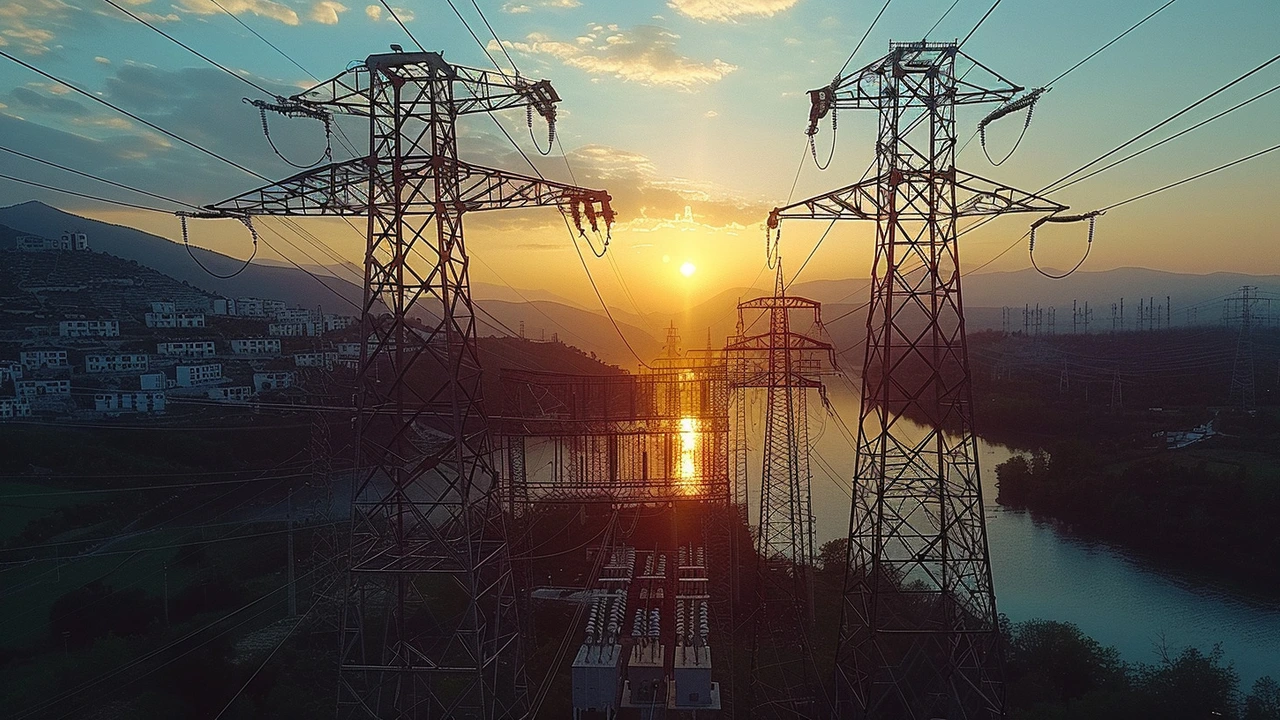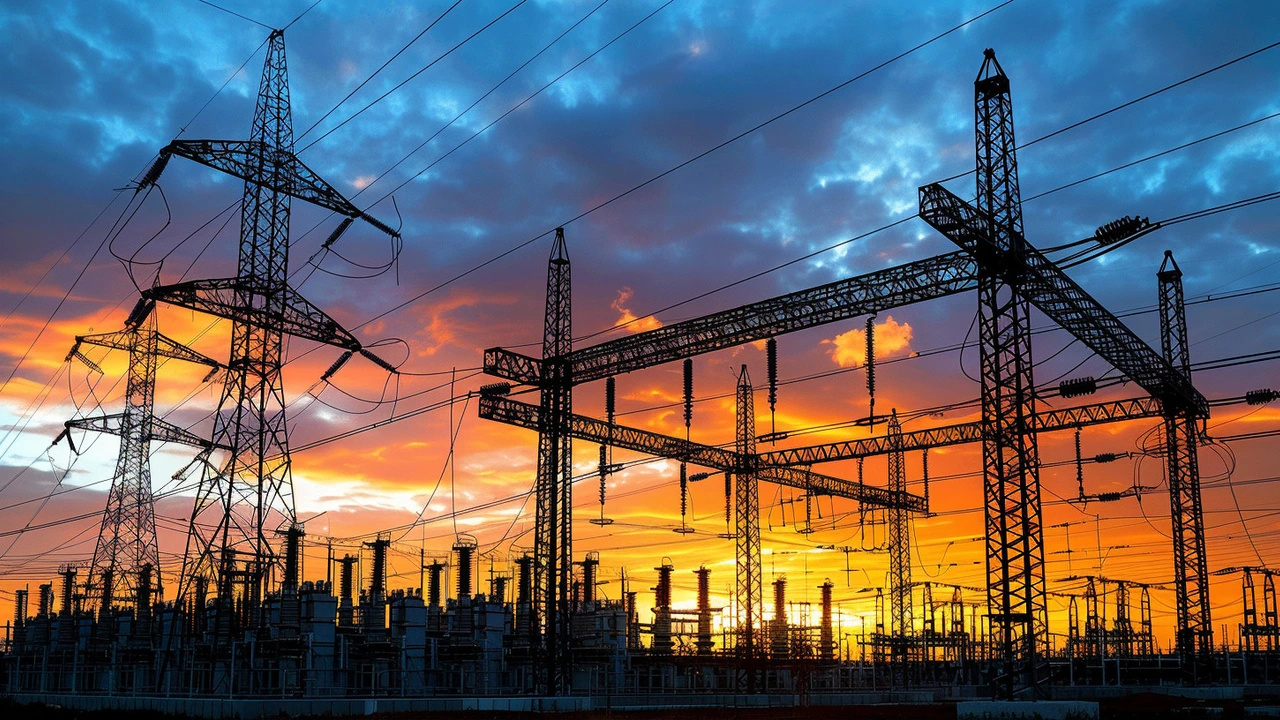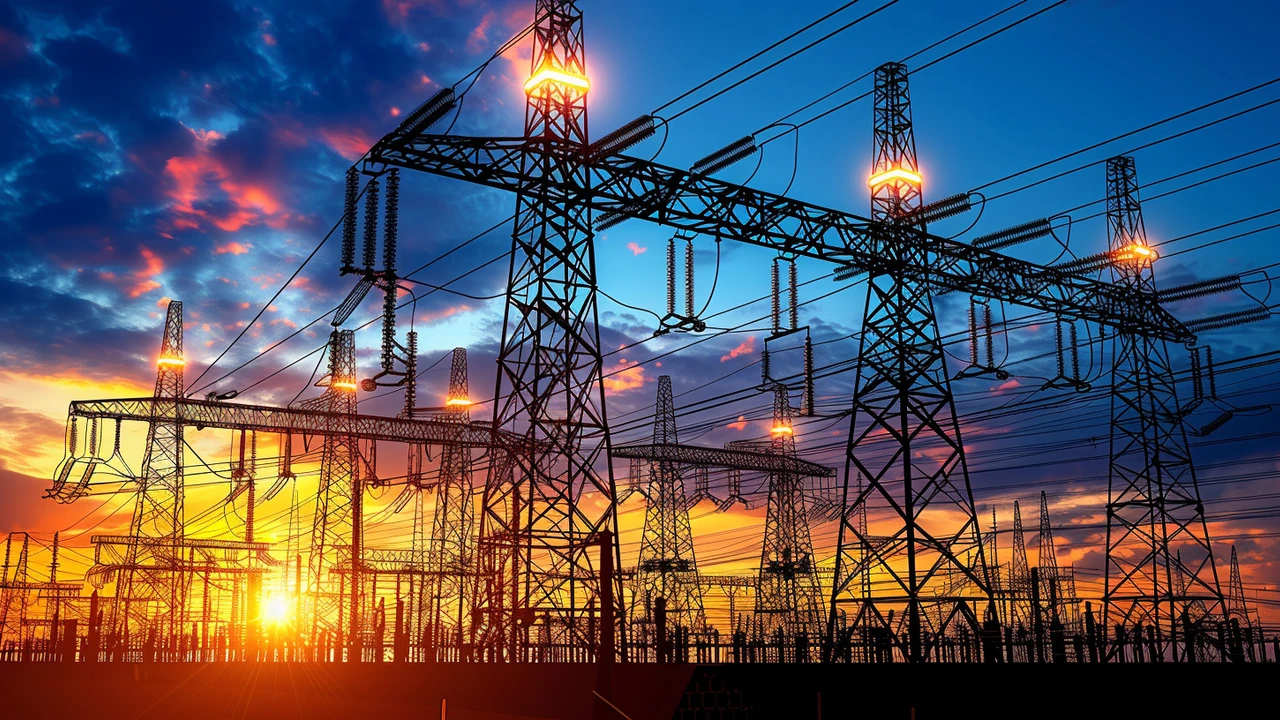Nationwide Blackout Strikes Nigeria Again
In an unsettling repeat of past disruptions, Nigeria has found itself plunged into darkness once more following the collapse of the national electricity grid. This marks the fourth instance in 2024 alone, sparking widespread concern among citizens and authorities alike. The latest incident was confirmed by the Abuja Electricity Distribution Company (AEDC), which reported that the grid failure occurred at exactly 3:10 pm on July 6th. The outage has affected millions across the nation, disrupting daily activities and raising significant questions about the stability of the country's power infrastructure.
Persistent Power Problems
The continuous failures of the national grid have been a source of frustration for Nigerians. In addition to the recent collapses in February, March, and April, 2024, the grid also failed three consecutive times in 2023. Each collapse has initiated a cascade of outages that paralyze both urban and rural areas, affecting homes, businesses, and critical services. The repeated power failures have not only sparked public outcry but have also emphasized the urgent need for substantial reforms within the energy sector.
AEDC's Efforts
The Abuja Electricity Distribution Company has been at the forefront in addressing these crises. The company has consistently worked with relevant stakeholders to restore power following each grid collapse. However, the challenges are immense. AEDC's spokesperson noted that the primary cause of the grid's instability stems from a gradual decrease in available generation, attributed to gas constraints that severely affect generating companies. This, combined with outdated infrastructure and administrative challenges, forms a complex web of issues needing resolution.

Impact on Daily Life
For the average Nigerian, these blackouts are more than just inconveniences—they are significant disruptions that affect every aspect of life. From housewives unable to prepare meals to school children unable to study in the evenings, the ripple effect of a national grid collapse is vast. Businesses relying on constant electricity face tremendous losses, and essential services such as hospitals are forced to rely heavily on backup generators, adding to operational costs. The unpredictability of the power supply further complicates logistics and planning for individuals and businesses alike.
Government and Stakeholder Actions
The Nigerian government has been criticized for its slow response and lack of proactive measures to address these recurring issues. While there have been discussions and proposed reforms, many citizens feel that the actions are far from sufficient. Authorities have held multiple meetings with key stakeholders within the energy sector, including the Transmission Company of Nigeria (TCN) and various generating companies. These discussions have focused on long-term solutions such as investments in renewable energy, upgrading grid infrastructure, and addressing the systemic gas constraints.
The Role of the Transmission Company of Nigeria
The Transmission Company of Nigeria (TCN) bears significant responsibility for managing the national grid. Despite ongoing efforts to maintain stability, the TCN faces numerous challenges. Aging infrastructure, limited financial resources, and operational inefficiencies continue to plague the company. The TCN has acknowledged the gravity of the situation and has reiterated its commitment to finding sustainable solutions. Investing in modernizing the grid infrastructure and enhancing operational protocols are seen as critical steps in ensuring future stability.
Global Perspective on Energy Stability
Energy stability is a global concern, with multiple countries facing their own challenges. However, Nigeria's consistent grid failures highlight a particularly dire situation that necessitates immediate attention. Comparatively, other nations have managed to implement more robust systems and contingencies to prevent such frequent nationwide outages. Observing and learning from these international examples could provide valuable insights for Nigeria as it aims to reform its energy sector.

Possible Long-Term Solutions
The path to resolving Nigeria’s energy crisis is multifaceted, requiring a combination of short- and long-term strategies. Key among these is diversifying the energy generation mix by incorporating renewable sources such as solar, wind, and hydro. Alongside this, significant investments in upgrading the existing grid infrastructure are paramount. Ensuring a stable supply of natural gas and streamlining the operations of generating companies would also contribute to a more reliable energy supply. Collaboration between the government, private sector, and international partners could facilitate these reforms, aligning efforts towards a common goal of achieving energy stability.
For citizens and businesses alike, the hope for a stable and reliable electricity supply remains strong. While the challenges are considerable, a concentrated effort on reforms and investments holds the promise of transforming Nigeria’s energy landscape. Until then, the nation continues to brace for each potential blackout, hoping that the lights will stay on longer next time around.

Phil Wilson
July 7, 2024 AT 00:51From a grid‑stability perspective, the recurring collapses point to a chronic shortfall in dispatchable generation capacity. The gas‑constrained turbines that feed the transmission network are operating well below their design output, which forces the system operator to rely on intermittent sources that lack adequate inertia. In addition, the aging transmission corridors suffer from thermal overloads, leading to automatic load‑shedding under peak demand conditions. A comprehensive demand‑side management program, coupled with accelerated commissioning of combined‑cycle plants, would help mitigate the frequency of blackouts. Until these systemic bottlenecks are addressed, the grid will remain vulnerable to cascading failures.
Roy Shackelford
July 8, 2024 AT 02:53Every time the lights go out, you have to wonder who's really pulling the strings behind the curtain. The same foreign corporations that profit from oil are the ones dictating how much gas we get, and they love keeping us in the dark to keep us dependent. It’s a classic power play – control the energy, control the nation. The elite will never let us have a reliable grid as long as they can harvest our resources for their own gain.
Karthik Nadig
July 8, 2024 AT 16:46Another blackout? Looks like the system is on repeat mode! 🌩️ It’s almost as if the grid is auditioning for a horror movie – every scene ends with the lights flickering out. The same old story: gas shortages, crumbling infrastructure, and no real investment. 🤦♂️ And while we’re all scrambling for candles, the big players sit back and watch the chaos unfold.
Charlotte Hewitt
July 9, 2024 AT 06:40They’ve been warned.
Jane Vasquez
July 9, 2024 AT 20:33Oh great, another national blackout – because apparently the electricity gods are on a coffee break. 🙄 It’s amazing how the same excuses keep coming back: “gas constraints,” “aging infrastructure,” “budget issues.” As if we’re supposed to keep trusting a system that can’t even keep the lights on for a few hours. If the government had any real commitment, they'd already be building solar farms across the Sahara by now.
Hartwell Moshier
July 10, 2024 AT 10:26It sucks.
Jay Bould
July 11, 2024 AT 00:20Hey folks, just wanted to add a friendly reminder that while we’re dealing with these outages, it’s a good chance to try out some low‑tech solutions. A simple solar lantern can keep a kitchen lit for cooking, and a hand‑crank radio can help stay informed. In many parts of the world, communities have built micro‑grids that run on solar or small hydro, providing reliable power even when the national grid falters. It might be worth exploring community‑led initiatives here too.
Mike Malone
July 11, 2024 AT 14:13It is fascinating to observe the recurring pattern of grid failures in Nigeria, a phenomenon that invites a deep analytical approach to the underlying causality. The first point of consideration lies in the generation‑mix imbalance, where over‑reliance on gas‑fired plants creates a systemic vulnerability whenever supply constraints emerge. Secondly, the transmission network itself suffers from chronic under‑investment, resulting in thermal overloads that trigger protective shedding. Thirdly, regulatory inertia compounds these technical deficiencies, as policy reforms lag behind the rapid growth in demand. Moreover, the lack of diversified renewable integration means the grid cannot buffer shortfalls with alternative sources. The cumulative effect is a cascade of events: gas scarcity reduces generation, which stresses the transmission lines, thereby prompting load‑shedding protocols. In addition, bureaucratic delays impede timely maintenance, exacerbating equipment fatigue. Furthermore, corruption allegations suggest that allocated funds for infrastructure upgrades often fail to reach intended projects. The socio‑economic impact, evident in disrupted commerce and health services, underscores the urgency for a strategic overhaul. Consequently, a multi‑pronged solution is essential: augmenting gas supply chains, accelerating renewable capacity deployment, and instituting transparent governance mechanisms. Each of these pillars must be reinforced by robust financing models, perhaps via public‑private partnerships. Finally, stakeholder engagement, including community participation, will be crucial to ensure that reforms are both inclusive and sustainable. In sum, without decisive, coordinated action, the cycle of blackouts is likely to persist, undermining development goals and eroding public confidence.
Pierce Smith
July 12, 2024 AT 04:06I get where you’re coming from, but the narrative that foreign interests are the sole puppet‑masters oversimplifies a complex domestic challenge. Nigeria has abundant resources, yet the bottleneck is often in policy execution and infrastructure funding, not just external meddling. Engaging constructively with stakeholders, including local engineers and community groups, can yield practical solutions that reduce reliance on imported technology. It’s about building capacity at home, not just pointing fingers.
Abhishek Singh
July 12, 2024 AT 18:00Sure, blame the foreigners again, because that’s the easy story. Meanwhile the local elite sit on piles of cash and do nothing. Classic.
hg gay
July 13, 2024 AT 07:53Honestly, I feel for everyone stuck in the dark; it’s a real hardship when you can’t charge a phone or keep food fresh. The repeated outages also strain the health sector – imagine hospitals scrambling with generators that run out of fuel. It’s a systemic issue that calls for a collective response: better maintenance schedules, transparent budgeting, and community‑driven renewable projects. 🌍 Let’s keep pushing for real change, because everyone deserves reliable power.
Owen Covach
July 13, 2024 AT 21:46Power’s out again. Lights off.
Pauline HERT
July 14, 2024 AT 11:40If you’re waiting for the government to magically fix the grid, you’re in for a long wait. The only way forward is aggressive private investment and cutting red tape.
Ron Rementilla
July 15, 2024 AT 01:33I’m curious about the exact metrics the transmission company uses to decide when to trigger load‑shedding. Understanding those thresholds could help us anticipate future outages and plan accordingly.
Chand Shahzad
July 15, 2024 AT 15:26Dear community, let’s collaborate on a roadmap for sustainable energy reforms. By combining governmental initiatives with private sector innovation, and leveraging international expertise, we can create a resilient grid that supports economic growth and improves quality of life for all citizens.
Eduardo Torres
July 16, 2024 AT 05:20It’s heartbreaking to see families coping with daily life while the power keeps flickering. I’ve been volunteering with a local group that distributes solar kits to schools, and the impact is tangible. Small steps matter.
Emanuel Hantig
July 16, 2024 AT 19:13The recurring blackouts are more than a technical glitch; they’re a symptom of deeper governance challenges. When energy reliability falters, it ripples through health, education, and commerce, stalling development. A philosophy of energy justice demands that we treat power as a basic right, not a commodity. By embedding this principle into policy, we can prioritize equitable access, foster innovation, and build a grid that truly serves all Nigerians. 🌞